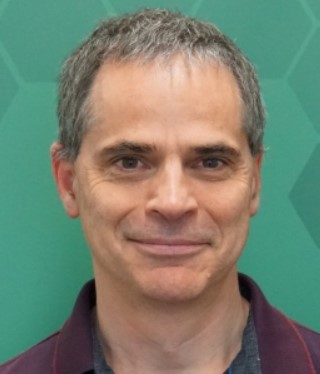Contact

C.R. (Bob) Koch
| Professor | ||
| Mechanical Engineering, University of Alberta | ||
| Office: 10-232 Donadeo Innovation Centre for Engineering | ||
| Tel. (780) 492-8821 | Fax: (780) 492-220 | |
| Ph.D. (Stanford University, 1986-1991), P.Eng | ||
| Email: mailto:bob.koch@ualberta.ca | ||
| Google Scholar: Koch Google Scholar | ||
| ORCID |
Research Interest
Behaviour of internal combustion engines and fluid systems and the application of control to these systems. My research can be divided into three areas: internal combustion engines, engine control, and fluid mechanics of microdroplets.
Key Words
Internal Combustion Engines, Control Systems, Machine Learning, Fluid Mechanics, Low Temperature Combustion, Exhaust Gas Sensors, Exhaust Gas Aftertreatment, Carbon Free Fuels, Biofuels, Mechatronics, H2/Diesel Dual Fuel, Model Based Diagnostics, Machine Learning Control, Physics Inspired Neural Networks
Motivation
One goal is to develop control methods that reduce CO2 in Internal Combustion Engines (ICE) powered transportation by optimizing the engine/aftertreatment system during dynamic operation and using a variety of low or zero carbon fuels. It is proposed to combine Model Predictive Control (MPC) and Machine Learning (ML) with domain knowledge to solve these complex constrained problems.
Develop a fundamental understanding and methods of combining MPC with ML to improve the performance of complex engineering problems is a longer term goal for the research.
Brief Description
Model Predictive Control (MPC) is a systematic way to provide the optimal solution for control problems while considering constraints. MPC has challenges, such as high computational cost and the requirement for high accuracy plant models and this is where there is an exciting opportunity to combine it with Machine Learning (ML).
Integrated high efficiency multi-mode combustion and aftertreament has emerged as a very promising technology to simultaneously reduce fuel consumption and harmful emissions for ICEs but requires control. To achieve high thermal efficiency and low emissions, advanced ICE combustion modes are used and these modes often require control during operation and when switching and the combustion/control must be co-optimized with the fuel.
The combustion timing of Homogeneous Charge Compression Ignition (HCCI) is controlled in realtime, cycle-by-cycle using solenoid intake/exhaust valves and has been controlled using MPC. Significant progress has also been made in controlling HCCI during the combustion where a physics based reaction kinetics combustion model (clear box) is reduced to a grey box model and run in realtime at 0.1 degree crank angle on an FPGA. Engine knock is avoided using water injection while variable valve timing and high energy spark are used to avoid misfire with this in-cycle control. This work will allow very novel control to enable use of a variety of bio-fuels and carbon free fuels such as H2.
Fast responding feedback sensors that are inexpensive and reliable are essential to achieve Real Driving Emissions (RDE). The focus of my work has been on understanding low cost electrochemical production sensors and using this understanding to: diagnosis sensor failures, understand NOx ammonia cross sensitivity, and to change the sensor operation point to measure HC emission. Using the existing NOx sensor to measure another species (HC or NH3) was possible through detailed understanding of the sensor and dynamic control of the sensor operation. This sensor knowledge is combined with ML in a grey-box model.
Control of distributed parameter systems, although challenging, is relevant to flow and combustion problems. Fundamental aspects of discrete time model based control is examined. Applications include: jacket tubular reactors where stability of model based control in a distributed setting is examined.
Progress has been made applying modeling and control of thin films, particle separation and drag reduction in flows.
Financial Support
EDI
- My aim to provide the highest quality training within an inclusive, equitable, and supportive environment
- In my job postings I encourage all qualified applicants and encourage applications from racialized persons/visible minorities, women, Indigenous persons, persons with disabilities, ethnic minorities, and persons of minority sexual orientations and gender identities
Job Postings
- Phd or MSC Position for January 2024
- Urban Transportation Emissions and GHGs; Technologies and Behavioral Shifts Towards Zero Emissions
- Job Posting details